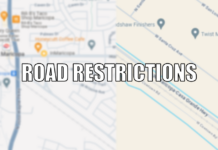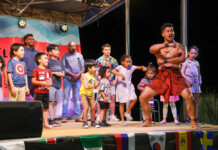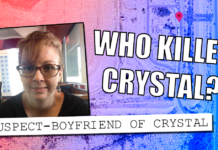Amid wildfires that devastated the Hawaiian island of Maui this week, a climbing death toll sends pangs of sorrow rippling across the ocean and the desert.
For Maricopa resident Janelle Gomez, a Native Hawaiian who relocated from the oft-idyllic island chain two years ago, grief mirrors the loss of a family member.
“When Maui is burning, not only are people losing their lives, but we feel our sibling is burning as well,” Gomez told InMaricopa Friday. “That affects our nutrition, physically and spiritually, because the land is our family.”
Gomez moved from Hau’ula, Hawai’i, and launched Learn With Aloha in Maricopa last year as a Polynesian cultural education program. After the coronavirus pandemic priced her out of her home state, she followed family members to Maricopa.
But today, she has relatives on Maui, where at least 55 people are confirmed dead with projections advancing the death toll to the worst in state history — deadlier than a tsunami on the Big Island in 1960 that killed 61.
“All of Hawaii is in mourning right now, and that includes us,” Gomez said. “The Spirit of Aloha is there but it is also here in Maricopa.”
Her family members avoided death and injury and are working to house and aid those less fortunate.
Wildfires that started Tuesday decimated at least 270 buildings on the island that’s nearly 10 times smaller than Pinal County. Abnormally dry conditions attributed to climate change were worsened by winds from Hurricane Dora, forcing the evacuation of thousands.
Hawai’i has long been plagued by tragedy, Gomez said. Hurricanes, volcanic eruptions, wildfires and nuclear bombings dot Hawai’i’s history since U.S. Marines overthrew the monarchy. The state is still under attack by nature and people alike.
This week, the infamous Kansas-based hate group Westboro Baptist Church flew to Maui and antagonized churches after church leaders claimed the islands would be “utterly destroyed” Sunday. The Arizona State Legislature passed a law in 2011 banning the hate group from picketing here after its members planned to protest funerals for victims of a Tucson mass-murder.
Gomez described Sunday’s protests as “really sad.” It’s indicative of nearly a century in Arizona and elsewhere on the mainland when it was illegal to teach Hawaiian language in schools.
“Sharing my culture helps cure my homesickness,” Gomez said. “Especially in times like these.”
The Maui wildfires have only furthered her mission to be the agent of a Hawaiian cultural revival here in Maricopa, where she teaches hula dancing and other Polynesian cultural classes for people of all ages and backgrounds.
“I’m thinking about all the people in Lahaina who passed away that we could have learned so much from,” she said through tears.

![Gomez For Maricopa resident Janelle Gomez, the sorrow mirrors the loss of a family member. [Brian Petersheim]](https://www.inmaricopa.com/wp-content/uploads/2023/08/Gomez.jpg)



![City gave new manager big low-interest home loan City Manager Ben Bitter speaks during a Chamber of Commerce event at Global Water Resources on April 11, 2024. Bitter discussed the current state of economic development in Maricopa, as well as hinting at lowering property tax rates again. [Monica D. Spencer]](https://www.inmaricopa.com/wp-content/uploads/2024/04/spencer-041124-ben-bitter-chamber-property-taxes-web-218x150.jpg)

![3 things to know about the new city budget Vice Mayor Amber Liermann and Councilmember Eric Goettl review parts of the city's 2024 operational budget with Mayor Nancy Smith on April 24, 2024. [Monica D. Spencer]](https://www.inmaricopa.com/wp-content/uploads/2024/04/spencer-042424-preliminary-budget-meeting-web-218x150.jpg)





![Alleged car thief released without charges Phoenix police stop a stolen vehicle on April 20, 2024. [Facebook]](https://www.inmaricopa.com/wp-content/uploads/2024/04/IMG_5040-218x150.jpg)




![City gave new manager big low-interest home loan City Manager Ben Bitter speaks during a Chamber of Commerce event at Global Water Resources on April 11, 2024. Bitter discussed the current state of economic development in Maricopa, as well as hinting at lowering property tax rates again. [Monica D. Spencer]](https://www.inmaricopa.com/wp-content/uploads/2024/04/spencer-041124-ben-bitter-chamber-property-taxes-web-100x70.jpg)